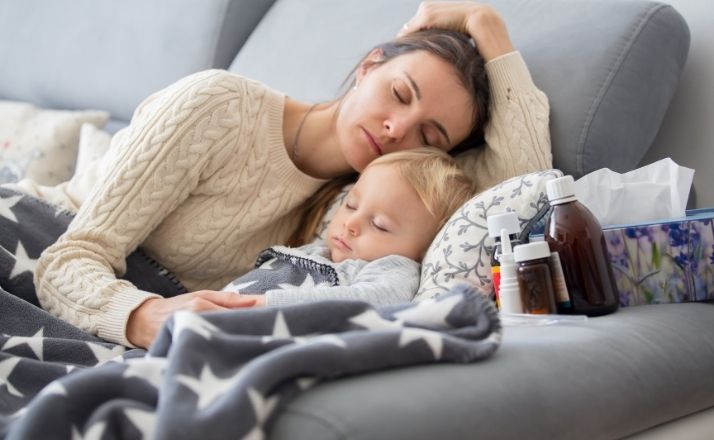It’s no fun when your kids are sick. With germs and viruses being shared like candy between the kids, there’s really no escaping the flu or the tummy bug hitting your house. Even though it can feel like a lot to work through as a parent, it’s important to understand that medications specifically for kids may help.
Use these tips for proper medication dosing as a way to help ease the aches and pains that come with illnesses.
Medication dosing for children
First and foremost, it’s important to understand that nothing written here is to be taken as medical advice. If you have concerns or questions, talk to a licensed doctor or pharmacist. They will explain the correct dosage and treatment options for your child.
Whew, now that we’ve cleared that up . . . let’s talk about the importance of understanding how medicine dosage works for kids.

Medication dosing by weight or age
Always read the labels. It’s required to have the dosage on the bottle and/or box. These guidelines are determined by child’s weight and age. This shows the maximum amount of medicine that your child can take during the course of the day.
These medicine guidelines are NOT simply suggestions and should be followed as they’re written.
Pediatric Dose Calculator
If your house is like mine, there is the likelihood that the medicine box is lost and the label has been torn or ripped off. It happens, welcome to parenthood.
This is where you can use a drug dose calculation formula to figure out the dosage that your child can take.
And remember — never guess and never assume that different medicines are the same dosage. A quick call to the pharmacy can help to clear it up. Then you will know what the safest dose is for your child.
Why are medications dosed differently for a child?
The way that children absorb the medicine is different than adults, which is why it’s important to read labels. Adult metabolisms are different than a child’s, which plays a part in why the dosages are different as well.
Adults will take a higher dosage based upon factors that have been deemed safe for them based upon their genetics and also pharmacokinetic parameters.
Tips for talking to your children about medicine
Making sure you’re giving your kids the right dosage is vital. It’s also important to talk to your kids about over-the-counter medicine, too.
Childproof caps are fine, but let’s be real. Those things are easier to break into than the cookie jar at home.
Give the kids the knowledge that they should never take medicine on their own. And they should not take it unless a trusted adult (like a school nurse or doctor) is giving it to them.
The more everyone in the family can be on the same page about medicine, the easier it will be when the kids are really sick!











